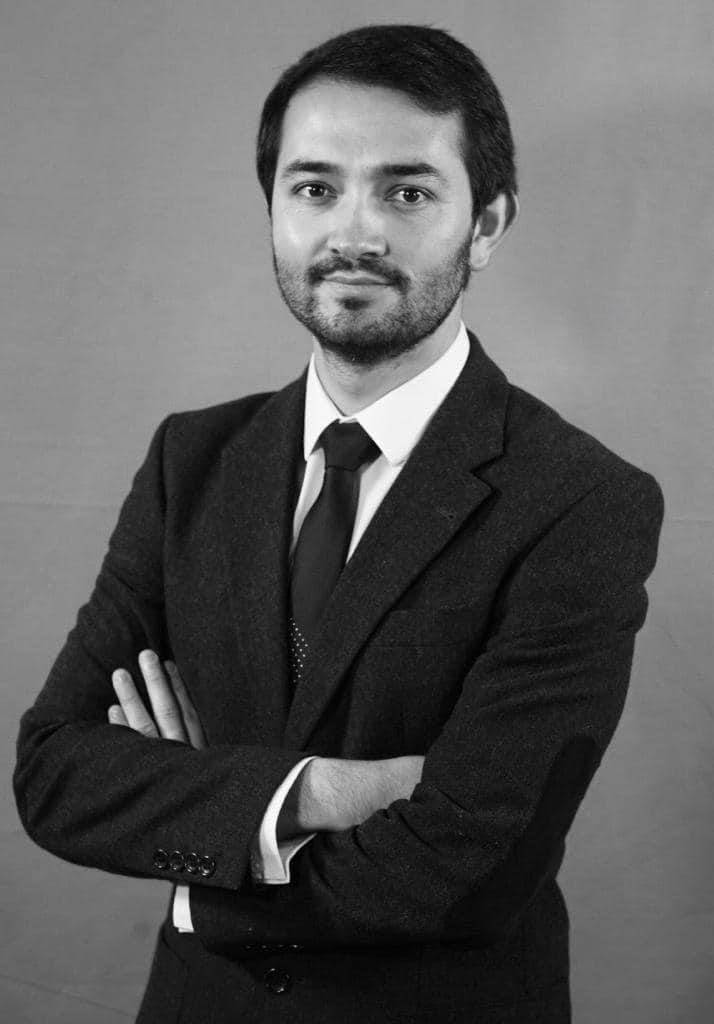You are here :
- EUTOPIA website
- Home
- Research & Innovation
- Fellowship
- SIF - Post-Doctoral Fellowships
SIF 2nd Cohort Fellows - Emrah Atasoy, University of Warwick

Emrah Atasoy, an Associate Professor of English Language and Literature, is a Marie Skłodowska-Curie Cofund Fellow (EUTOPIA-SIF) of the Institute of Advanced Study and the Department of English and Comparative Literary Studies at the University of Warwick, UK. Dr Atasoy was a visiting researcher at Harvard University, Pompeu Fabra University-Barcelona, the University of Oxford, and Penn State University. He received his PhD from Hacettepe University’s Department of English Language and Literature in 2019. He is the author of Epistemological Warfare and Hope in Critical Dystopia (Nobel 2021). His work appeared in journals such as Critique: Studies in Contemporary Fiction, Studies in the Novel, Utopian Studies, Science Fiction Studies, Librosdelacorte.es, and SFRA Review. He contributed chapters to The Postworld In-Between Utopia and Dystopia (Routledge 2021) and Speculations of War (McFarland 2021). He recently co-edited the forthcoming volume Utopian and Dystopian Explorations of Pandemics and Ecological Breakdown (Routledge 29 July 2024) and the critical forum “Cultural Encounters and Textual Speculations in the Mediterranean,” Utopian Studies (35.1.2024).
Curriculum Vitae
Education PhD (Joint), Hacettepe University (Türkiye), Dec. 2019, Dept. of English Language and LiteratureBA, Hacettepe University, June 2011, Dept. of English Language and Literature
- Experience
-
Selected Publications/Research achievements
Atasoy, Emrah. Epistemological Warfare and Hope in Critical Dystopia. Ankara: Nobel, 2021. ISBN: 978-625-7589-04-8. 176 pp.
Atasoy, Emrah and Thomas Horan. “Prayer Had BrokenOut: Pandemics, Capitalism, and Religious Extremism in Recent Apocalyptic Fiction.” Studies in the Novel 54.2 (Summer 2022) : 235-254.
Atasoy, Emrah. “Dys/utopian Narratives on the Screen: Beyond the Binaries in Children of Men and Lobster.” The Postworld In-Between Utopia and Dystopia: Intersectional, Feminist, and Non-Binary Approaches in 21st Century Speculative Literature and Culture. Eds. Tomasz Fisiak and Katarzyna Ostalska. London and New York: Routledge, 2021. 221-231. 286 pp.
Atasoy, Emrah. “Speculative Fiction Studies in Turkey: A Preliminary Survey.” Utopian Studies 32.2 (2021) : 236-251.
Atasoy, Emrah. “Utopia’s Turkish Translations and Utopianism in Turkish Literature.” Utopian Studies 27.3 (2016): 558-568.
Komsta, Marta, and Emrah Atasoy. "Against Anthropocentricism: A Stray's Quest in Diane Cook's The New WildernessLink opens in a new window." Critique: Studies in Contemporary Fiction, 2022. Doi: 10.1080/00111619.2022.2144109.
Research Project:
Futuristic Narratives in Turkish Literature: 1950-2021: Speculation in the AnthropoceneSpeculative literature studies, critical future studies, Anthropocene studies, and the environmental humanities have broadened their scope to acknowledge works in non-Anglophone literatures. Scholarship, which relates to critical dystopianism, speculation in the Anthropocene, climate fiction, and futuristic narratives in Turkish literature, exists to some extent but is, however, inadequate despite such an increasing interest. This new project aims to present a detailed discussion of Turkish futuristic narratives and speculation in the Anthropocene, covering the period between 1950 and 2021.
The discussion of relevant literary texts will be shaped around three key ideas: the impact of power dynamics (which is closely related to welfare and inclusion), subjectivity and environmental breakdown/degradation in futuristic narratives in modern and contemporary Turkish literature. These key topics have been selected because they have an entangled relationship. This project will investigate how futuristic narratives can help us think through current socio-political problems; how speculative literature tradition has strong potential to contest the disparate aspects of the world-system; the urgent need for a paradigm shift from a human-centred one to an earth-centred one; the need for utopia as a radical form of hope; speculative fiction’s capacity to educate; and the political positions that readers are likely to take.
These questions and points will ultimately illustrate the hermeneutic work of how Turkish speculative fiction figures, re-presents, and intervenes in the current socio-political conjuncture. The ultimate aim is to find out how Turkish futuristic narratives approach these three challenging topics and to discuss the potential room for hopeful and utopian thinking for a more sustainable future.


